Yogyakarta, 30/5/2025 — A night full of meaning and memory unfolded at the event Tujuh Puluh Dua Tahun Cak Nun dan Bicara Bicara, held on Friday Pahing, May 30, 2025, at Kawasan Cagar Kreatif Tanah Air, Ngaglik, Sleman. The event was attended by artists, close friends of Cak Nun, and invited guests.
This celebration marked a tribute to the long intellectual and spiritual journey of Cak Nun as a cultural figure and scholar who has shaped the landscape of Indonesian thought since the 1970s. Hosted by MC Seno Classical, the evening featured various performances and speeches from close companions who shared their personal testimonies about Cak Nun.
In his address, Prof. Dr. Aprinus Salam shared personal stories with the maestro. “I met Cak Nun for the first time when I was still in junior high school, around 1979. Since then, I have followed his works, especially his poetry. In fact, both my undergraduate thesis and master’s thesis were about his poetry,” he began. One of the most memorable aspects for Prof. Aprinus was Cak Nun’s autodidactic way of learning. “I was always curious about how he learned. I once observed that he would disassemble a computer, study all the components one by one, and then reassemble it. He could even fix broken cars. That was remarkable,” he explained.
As a closing note, he shared a lasting memory. “One story I always tell that shows how extraordinary he is, is that he eats and sleeps the least among us. His level of asceticism was profound. During Ramadan, at 3 AM, he would routinely send out his writings, showing how deeply he valued time,” he said.
The second testimony came from Budi Sarjono, a long-time friend of Cak Nun since 1974. “I met him in 1974 when I was working at Basis Magazine. He would often ask, ‘Bud, do you have paper? Envelopes? Stamps?’ Then he would sit down and rapidly type two to three articles to be sent to various newspapers. I was deeply impressed,” he recalled.
Budi also shared a poignant experience. “One of the most meaningful memories was when I invited him to deliver a sermon and read poetry at a Catholic Mass in 1975. Although there was some tension with church officials at the time, what I emphasize is how Cak Nun expressed his heart to God with sincerity. That moment shook me.” He also described Cak Nun as a humble friend. “With his already well-known name back then, he still enjoyed gathering with us, talking until late at night. Sometimes, he would call me just to ask to be scolded,” he added with a smile.
That night was more than a birthday celebration, it was a tribute to a thinker who never tires of seeking meaning, nurturing culture, and voicing the conscience of the people. Tujuh Puluh Dua Tahun Cak Nun dan Bicara Bicara stands as a testament to how his intellectual and spiritual journey continues to inspire many to this day.
[Master’s Program Literature, Marsya Kamila]

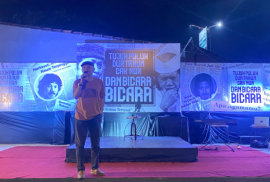
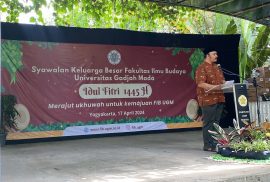
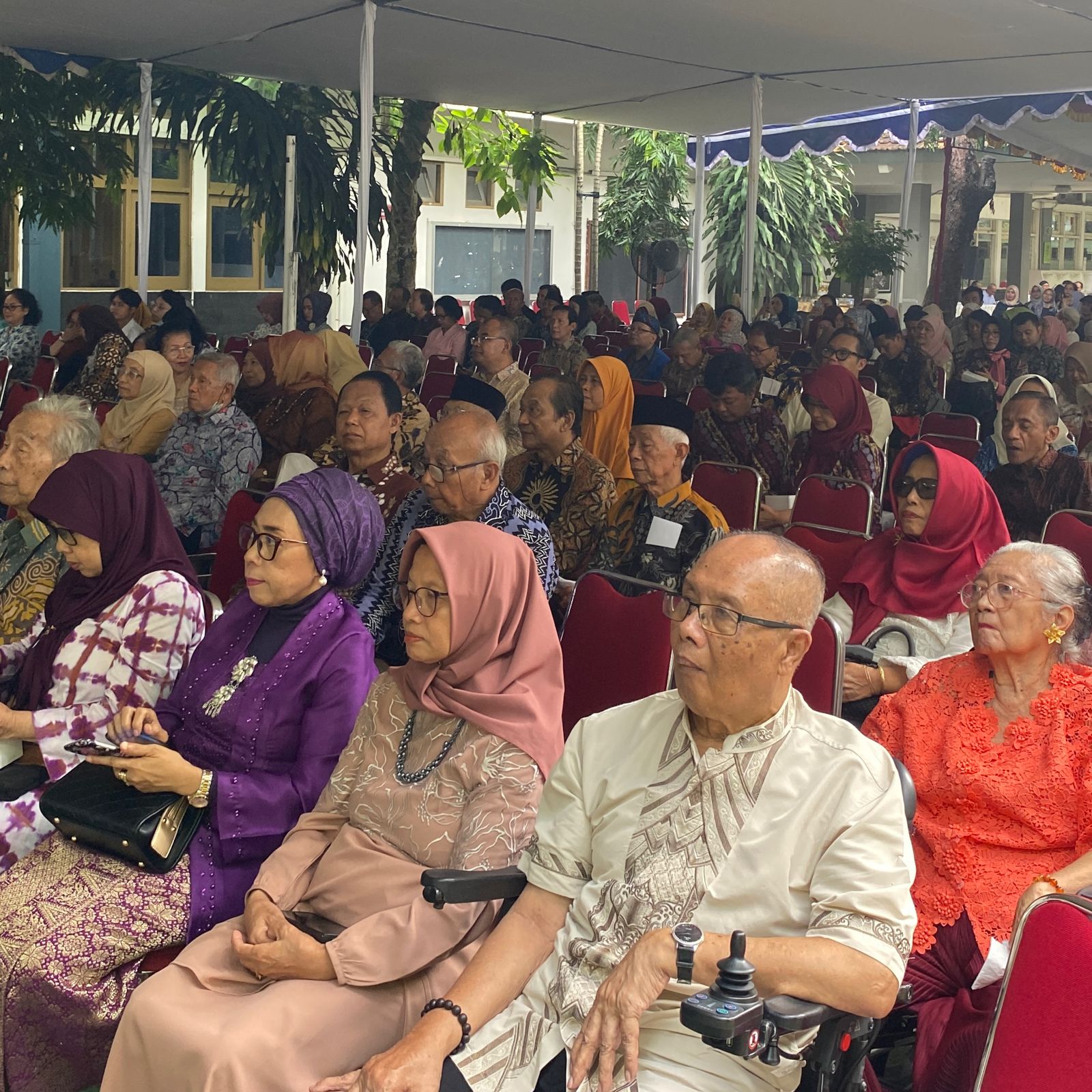
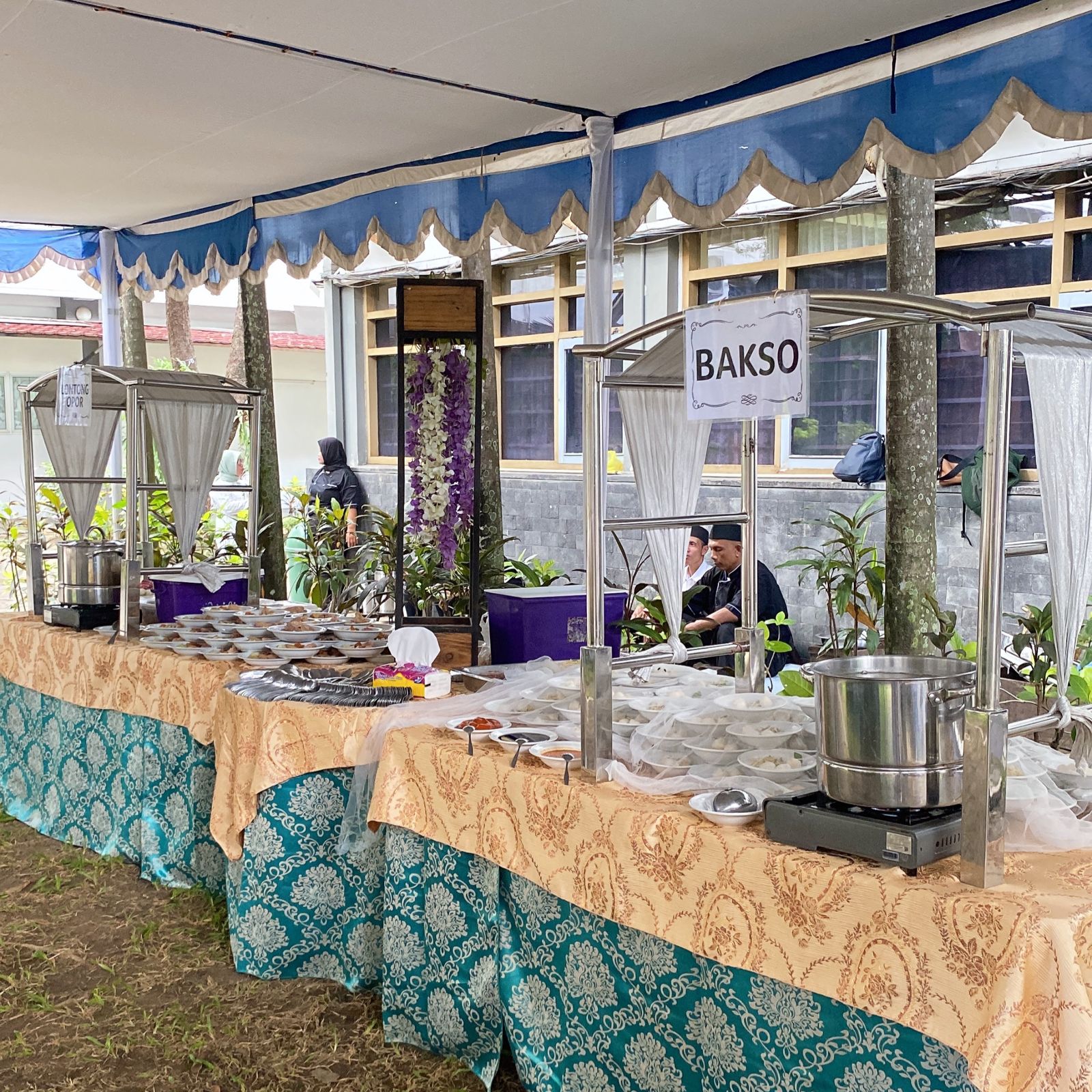
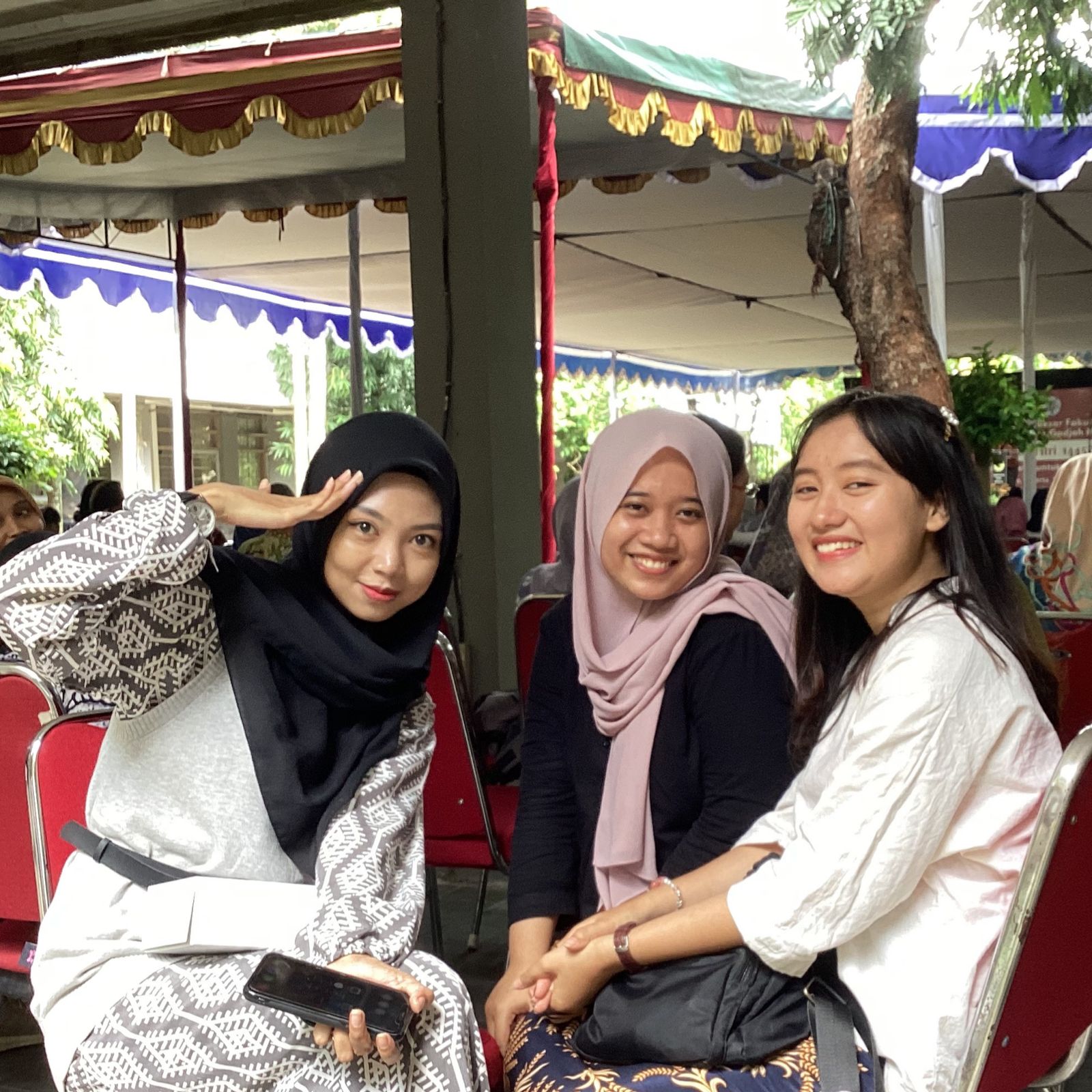
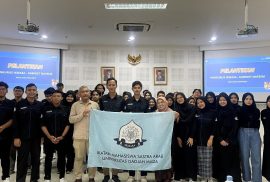
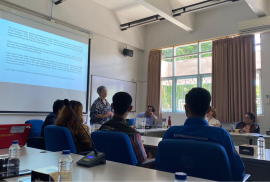
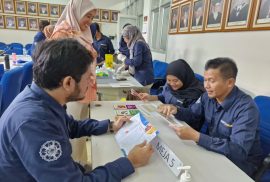
 The second day’s event was held the following day, it was Wednesday, 7th of February 2024 in Courtroom 1 of Poerbatjaraka Building, 1st Floor, Faculty of Cultural Sciences, Gadjah Mada University at 8 am until 12.15 pm. Because on the first day the participants were presented with basic material regarding Posbindu and so on, on the second day the participants were encouraged to practice. The Posbindu training participants carried out the Posbindu table 5 simulations and exercises with enthusiasm and passion, then immediately carried out the second post test to see the progress they had made as Posbindu cadres after receiving the material and training during the two-day event.
The second day’s event was held the following day, it was Wednesday, 7th of February 2024 in Courtroom 1 of Poerbatjaraka Building, 1st Floor, Faculty of Cultural Sciences, Gadjah Mada University at 8 am until 12.15 pm. Because on the first day the participants were presented with basic material regarding Posbindu and so on, on the second day the participants were encouraged to practice. The Posbindu training participants carried out the Posbindu table 5 simulations and exercises with enthusiasm and passion, then immediately carried out the second post test to see the progress they had made as Posbindu cadres after receiving the material and training during the two-day event.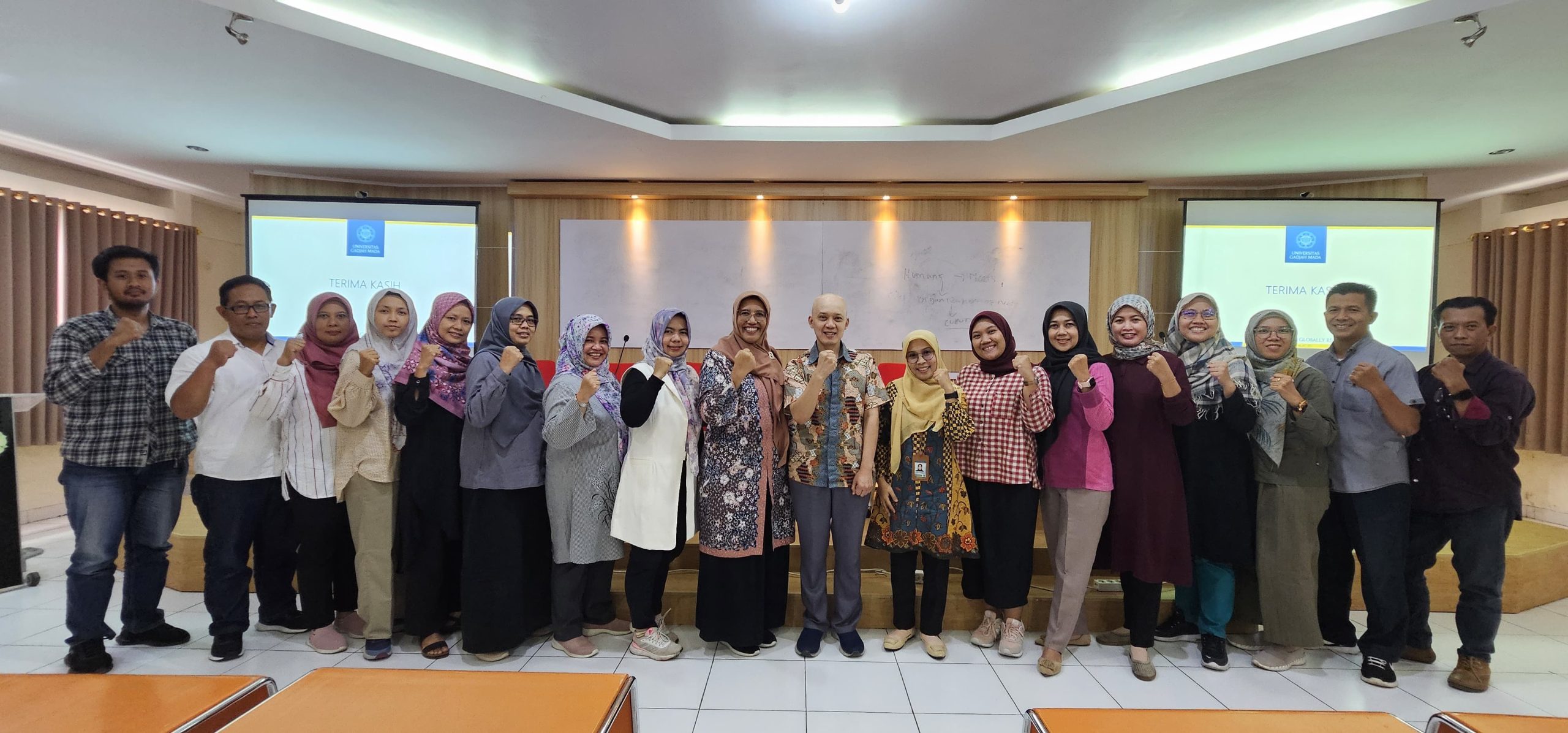 This event received cooperation and assistance from Mr./Mrs. UGM HPU Team. Head of HPU UGM, Prof. Dra. Yayi Suryo Prabandari, M.Sc., PhD, had the opportunity to directly accompany the training participants as a speaker regarding examination activities in posbindu and health check practices (measuring blood pressure and taking blood samples to check cholesterol, sugar and uric acid levels). He received a direct invitation from the Deputy Dean for Finance, Assets and Human Resources, namely Mr. Suray Agung Nugroho, M.A., Ph.D. The Posbindu cadre training was attended by staff from the Faculty of Cultural Sciences, Gadjah Mada University. The targets of Posbindu services are all staff, both lecturers and teaching staff in the faculty environment.
This event received cooperation and assistance from Mr./Mrs. UGM HPU Team. Head of HPU UGM, Prof. Dra. Yayi Suryo Prabandari, M.Sc., PhD, had the opportunity to directly accompany the training participants as a speaker regarding examination activities in posbindu and health check practices (measuring blood pressure and taking blood samples to check cholesterol, sugar and uric acid levels). He received a direct invitation from the Deputy Dean for Finance, Assets and Human Resources, namely Mr. Suray Agung Nugroho, M.A., Ph.D. The Posbindu cadre training was attended by staff from the Faculty of Cultural Sciences, Gadjah Mada University. The targets of Posbindu services are all staff, both lecturers and teaching staff in the faculty environment.